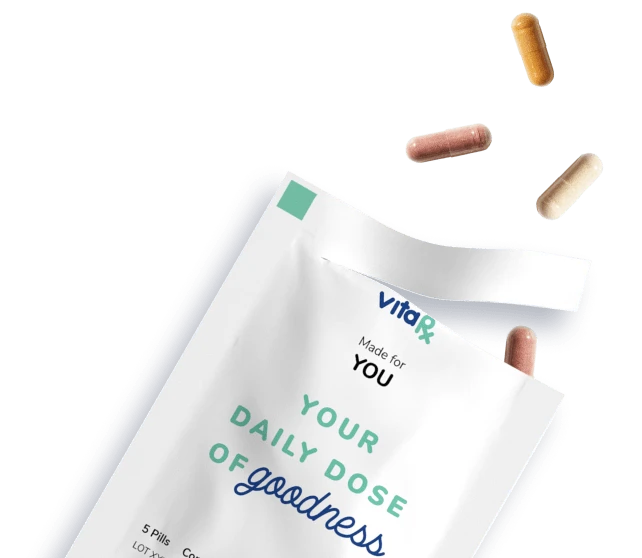Last update: March 25, 2025
4 minute read
What are Amino Acids?
Discover the importance of amino acids, their role in our bodies, and how a balanced diet provides these essential protein building blocks.

By Derick Rodriguez, Associate Editor
Edited by Dr. Dimitar Marinov, MD, RDN, PhD

Have you ever wondered about the secret behind those proteins that fuel your body? This blog post will explore what amino acids are, how they affect your body, which foods contain them, and the essential/non-essential amino acid showdown. Plus, we'll share some tips on how to make sure your diet is packed with these mighty building blocks.
What are amino acids? Amino acids are molecules that team up to create proteins, helping you stay strong and healthy.
Key takeaways
- Amino acids are the building blocks of proteins and play essential roles in many body functions
- There are 20 amino acids that are important for humans, with nine being essential
- A well-balanced diet can provide all the essential amino acids needed for optimal health
What are amino acids?
Amino acids are the building blocks of proteins responsible for essential functions like muscle repair, immune system support, and even your hair. Remember that they also play a vital role in maintaining a balanced mood and brain function.
For instance, think about your gym sessions. Your muscles undergo wear and tear, and guess who comes to the rescue?
That's right, your beloved amino acids! They help repair and rebuild your muscles, so you can continue flexin' those gains.

How do amino acids work their magic in my body?
From building and repairing tissues to creating hormones and enzymes, these molecular powerhouses are involved in almost every aspect of your health.
One prime example is the role of amino acids in neurotransmitter production. Your brain relies on these chemical messengers to regulate mood, sleep, and cognitive function. For instance, the amino acid tryptophan helps produce serotonin, your body's natural "feel-good" chemical.
What are essential and non-essential amino acids?
Great question! Regarding amino acids, there are two types: essential and non-essential. But before you go thinking that non-essential means "not important," let me clear things up for you.
Essential amino acids are the ones your body can't produce on its own, so we need to get them from your diet. There are nine essential amino acids:
- Histidine (it was previously considered semi-essential but is now considered essential for certain populations, particularly infants)
- Isoleucine
- Leucine
- Lysine
- Methionine
- Phenylalanine
- Threonine
- Tryptophan
- Valine
On the flip side, non-essential amino acids can be produced by your body, so you don't necessarily need to consume them through food.
VitaRx Tip
That doesn't mean they're less important for your overall health. They still play a crucial role in many bodily functions.
Where can I find amino acids in my food?
Amino acids are more abundant in your diet than you might think. In fact, they're found in a wide variety of foods.
For all you meat lovers out there, rejoice! Animal-based foods like chicken, beef, and fish are all fantastic sources of amino acids.
Vegan? No problem. Foods like quinoa, soy, and beans also punch powerful amino acids.
Let's take quinoa, for example. This trendy little grain is not only delicious and versatile but also a complete protein, meaning it contains all nine essential amino acids your body needs.
Amino acid content in common foods
The table below showcases the amino acid content of some popular food items, making it easier for you to plan a well-rounded, amino acid-rich diet. Don't forget to mix and match to make the most of these fantastic nutrient powerhouses!
Food Item | Essential Amino Acids (mg/100g) | Non-Essential Amino Acids (mg/100g) |
|---|---|---|
Chicken Breast | 6800 | 5,300 |
Quinoa | 1200 | 1,000 |
Salmon | 5000 | 1,000 |
Tofu | 2600 | 1,500 |
Lentils | 3200 | 2,400 |
Almonds | 2300 | 1,700 |
Frequently asked questions (FAQ)
Here are some of the most frequently asked questions about amino acids.
Final thoughts
Well, that's a wrap on amino acids! We hope this post has given you the wisdom to help you understand the importance of amino acids and how to make the most of them in your diet.
Source
Editor

Derick Rodriguez
Derick Rodriguez focuses on editing health and wellness-related content. With over half a decade of experience in the digital realm, Derick has developed a unique skill set that bridges the gap between complex health concepts and accessible, user-friendly communication. His approach is deeply rooted in leveraging personal experiences and insights to illuminate the nuances of health and wellness topics, making them more approachable and empowering readers with knowledge and confidence.
Fact checker

Dr. Dimitar Marinov
Dr. Marinov has years of experience in scientific research and preventive and clinical medicine. His publications in peer-reviewed journals are on nutritional status, physical activity, and musculoskeletal disorders among adolescents.
At VitaRx, we're not just passionate about our work — we take immense pride in it. Our dedicated team of writers diligently follows strict editorial standards, ensuring that every piece of content we publish is accurate, current, and highly valuable. We don't just strive for quality; we aim for excellence.
Related posts
While you're at it, here are some other relevant articles you might be interested in.

Get your personalized vitamin recommendations in less than
5 minutes.
Get your personalized vitamin recommendations in less than
5 minutes.







